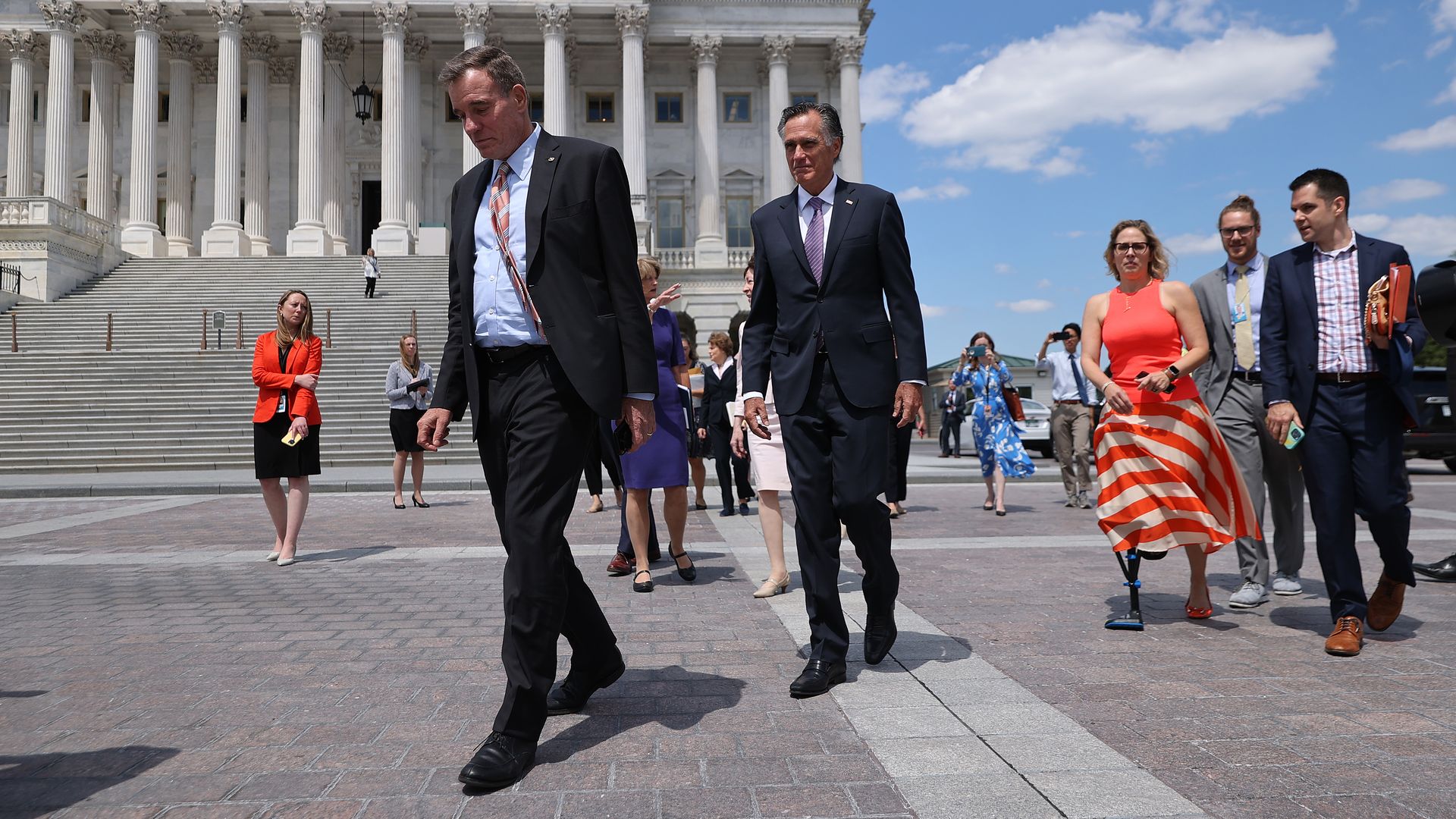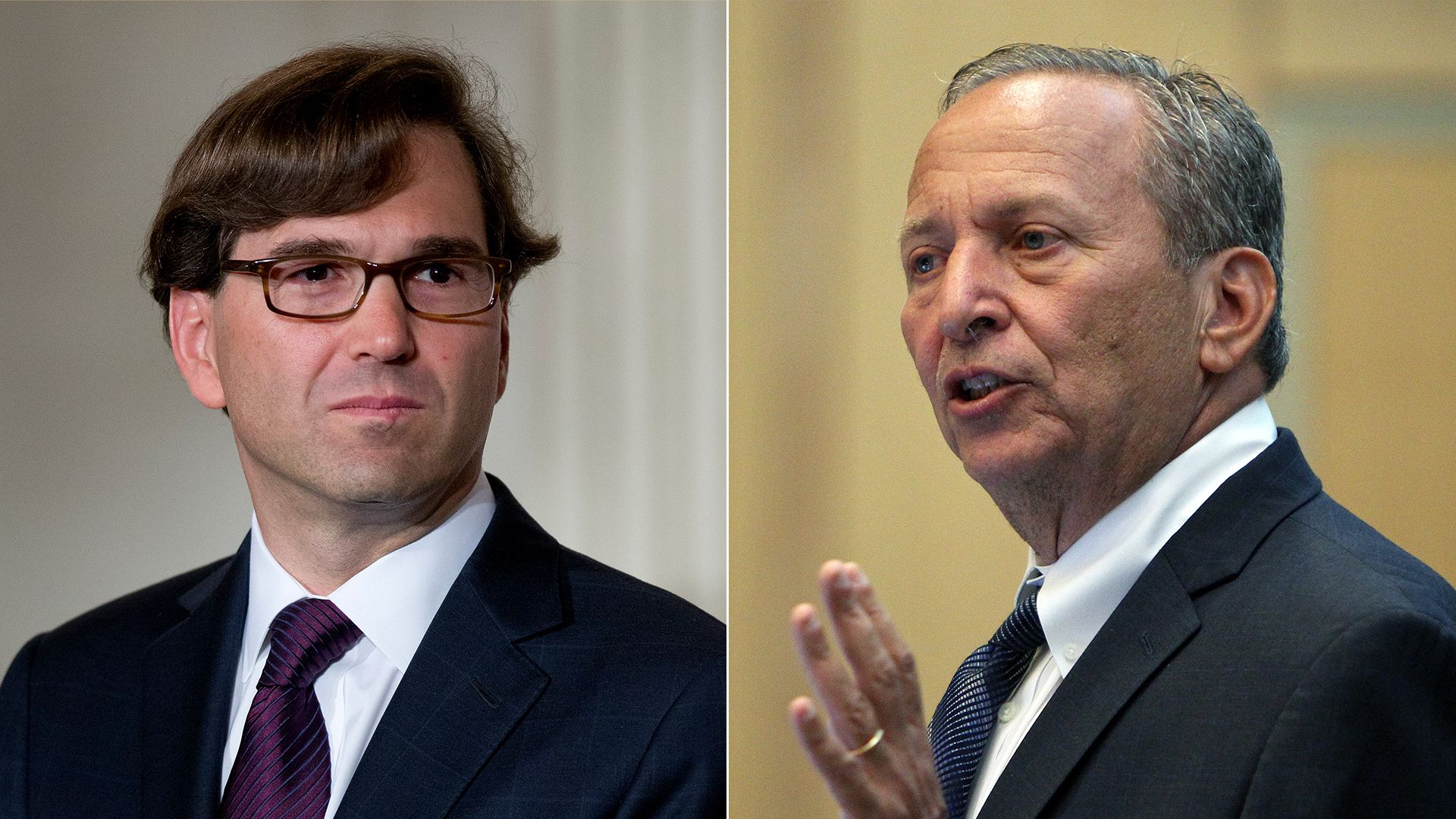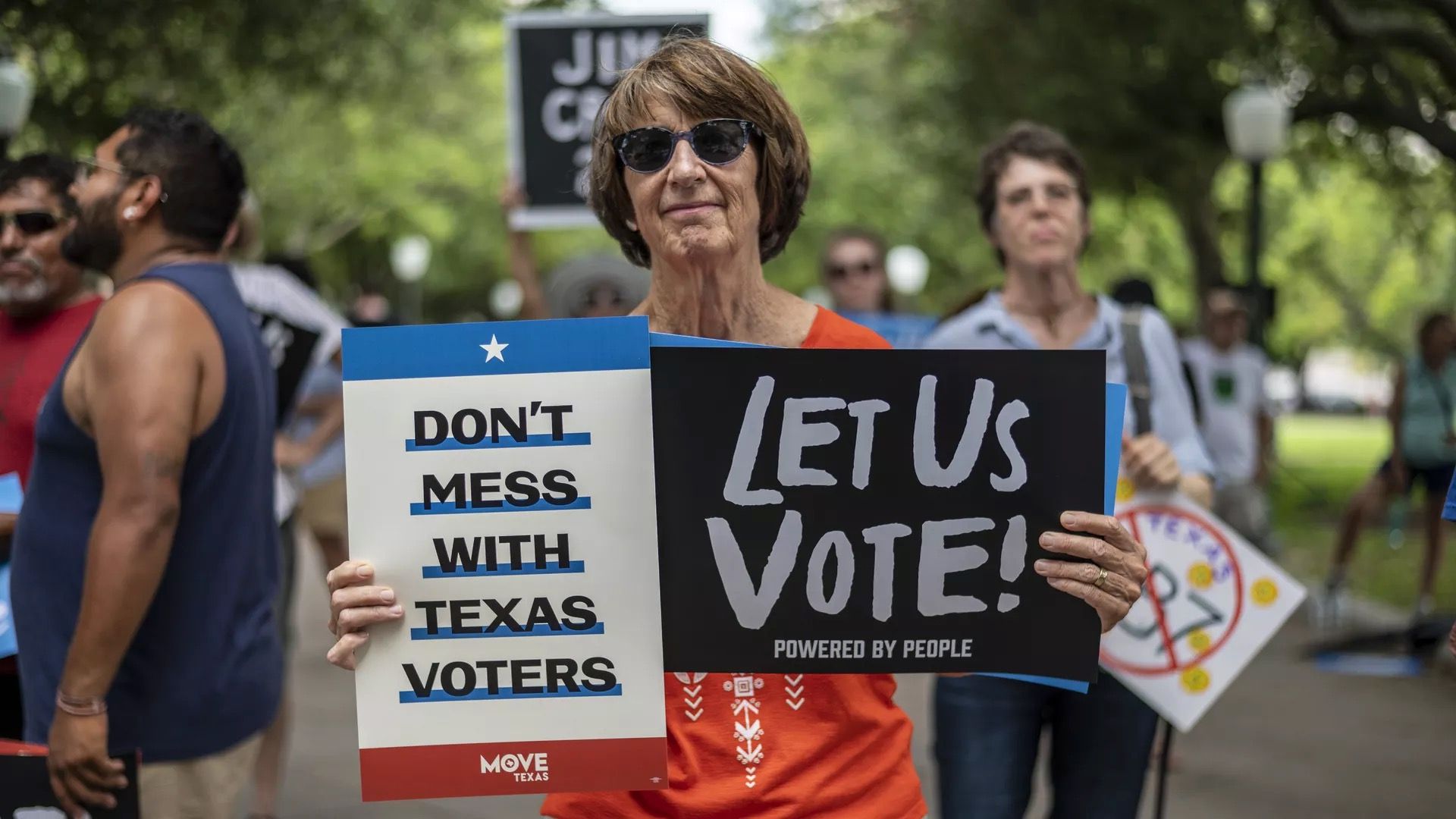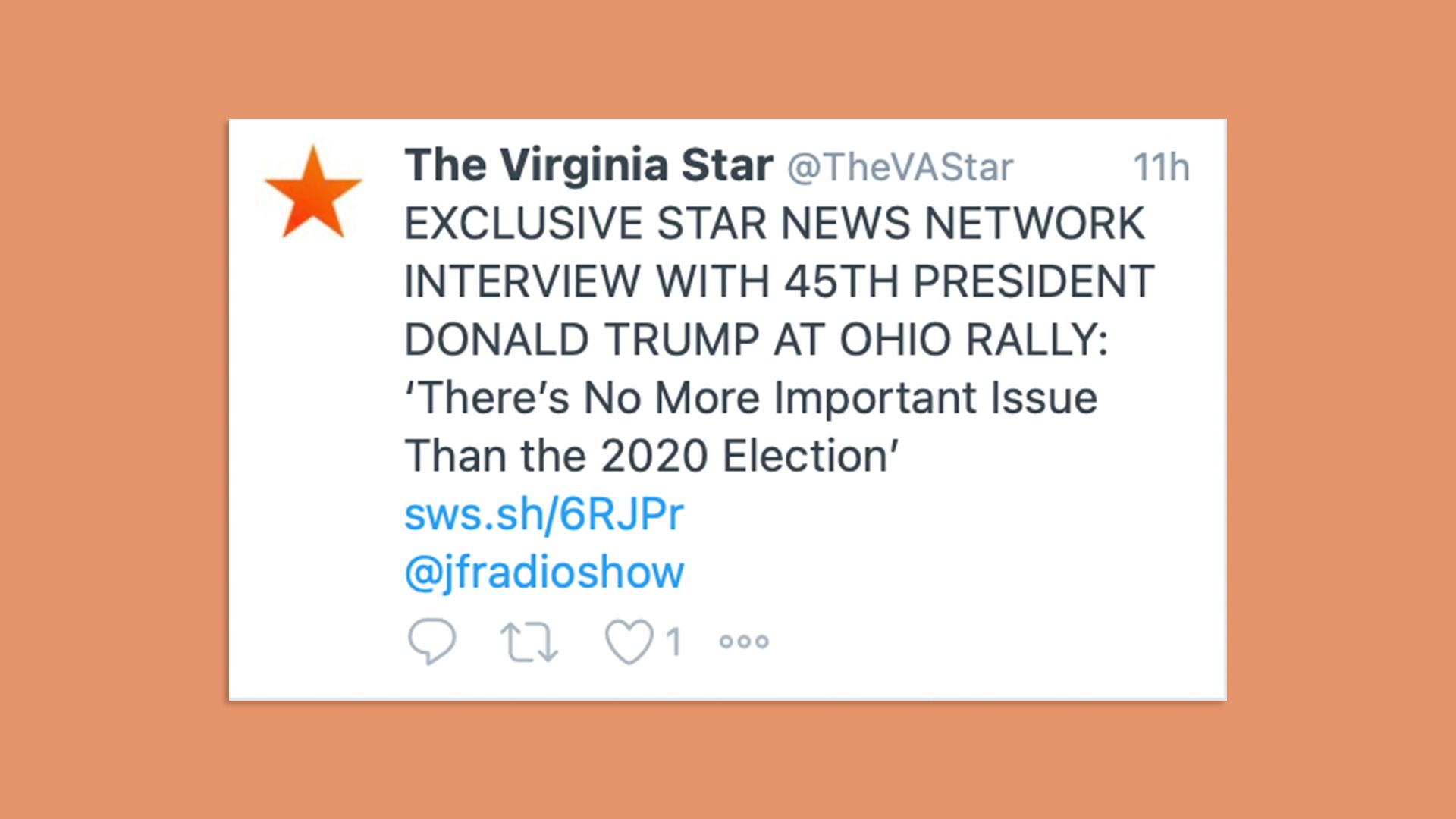| | | | | | | Presented By Amazon | | | | Axios Sneak Peek | | By Alayna Treene and Hans Nichols ·Jun 27, 2021 | | Welcome back to Sneak. The president hopes he put the infrastructure deal back together again. Smart Brevity™ count: 1,524 words ... 5.5 minutes. Edited by Glen Johnson. | | | | | | 1 big thing: Toyota leads companies in election-objector donations |  Data: Citizens for Responsibility and Ethics in Washington; Chart: Michelle McGhee/Axios Nearly three-dozen corporate PACs have donated at least $5,000 to Republicans who objected to certifying the 2020 election, yet Toyota leads by a substantial margin, Axios' Lachlan Markay writes. Why it matters: Following Jan. 6, huge segments of corporate America rethought their political-giving programs. The new numbers suggest some large companies have decided to maintain support — even for members of Congress deeply enmeshed in the pro-Trump conspiracy theories that fueled the Capitol attack. - Some prominent GOP objectors also have found they can replace any lost corporate support with small-dollar, grassroots donations driven by their reputations as pro-Trump hardliners.
By the numbers: Data compiled by the watchdog group Citizens for Responsibility and Ethics in Washington show Toyota gave $55,000 to 37 GOP objectors this year. - That equates to 40% of the bloc that voted to nullify President Biden's win after the Capitol siege.
- Toyota gave more than twice as much — and to nearly five times as many members of Congress — as the No. 2 company on the list, Cubic Corp., a San Diego-based defense contractor.
- The company's donations this year included a February contribution to Rep. Andy Biggs, an Arizona Republican who has been one of Congress' most vocal election conspiracy theorists. Biggs also helped organize the "Stop the Steal" rally prior to the Capitol attack.
What they're saying: "We do not believe it is appropriate to judge members of Congress solely based on their votes on the electoral certification," a Toyota spokesperson said in a statement emailed to Axios. - "Based on our thorough review, we decided against giving to some members who, through their statements and actions, undermine the legitimacy of our elections and institutions."
- The spokesperson did not respond to a follow-up about the specific threshold for statements that cross that line.
The big picture: According to CREW data shared with Axios, 34 companies have donated at least $5,000 to the campaigns and leadership PACs of one or more election objectors this year. - Other notable names on the list include Koch Industries, telecom giant AT&T, health insurer Cigna and tobacco company Reynolds American.
|     | | | | | | 2. Mark Warner emerges as moderates' dealmaker-in-chief |  | | | Sens. Mark Warner (D-Va.), Mitt Romney (R-Utah) and Krysten Sinema (D-Ariz.) head to a meeting with President Biden last week. Photo: Chip Somodevilla/Getty Images | | | | As Senate Majority Leader Chuck Schumer (D-N.Y.) and White House Chief of Staff Ron Klain navigate the legislative minefield of the next few months, they'll often turn to a moderate Democrat who gets far less ink than Sens. Joe Manchin (D-W.Va.) or Kyrsten Sinema (D-Ariz.). The big picture: Sen. Mark Warner (D-Va.) has become a pivotal player in the multi-trillion-dollar negotiations that will shape the Democrats' electoral prospects, Joe Biden's presidency and the future of the country, Axios' Jonathan Swan writes. - Warner was an effective negotiator in the group of 10 Republican and Democratic senators who compromised last week on a roughly trillion-dollar infrastructure deal blessed by the president.
- And now he'll be the most powerful moderating force on the Senate Budget Committee.
- That panel is led by Sen. Bernie Sanders (I-Vt.) and is expected to be the arena in which Democrats battle over their next dream: a multi-trillion-dollar deal on social programs paid for with an overhaul of the tax code.
Behind the scenes: Centrist Democrats and Republicans involved in the negotiations tell Axios that Warner is well-positioned for this dealmaking role. - Besides his committee seat, he's played a key role in previous bipartisan deals, including the COVID-19 relief package passed in December.
- A Republican source in the room for the recent infrastructure negotiations said Warner's private-sector background — he's a wealthy former tech investor — has positioned him well to speak the GOP language on numbers and financing.
- The source said Warner also lightened the mood in stuffy Capitol Hill hideaway offices by bringing along expensive bottles of wine.
White House legislative affairs director Louisa Terrell said the president was grateful Warner effectively argued against one proposed solution: raising the gas tax. - Warner also helped Democrats win the argument to use dynamic scoring to estimate the budget impact of the infrastructure package.
- Last Tuesday, the group was fighting about whether to factor expected economic benefits into their costs.
- Warner showed up the next day with a paper, co-written by one of the GOP's favored economists, Douglas Holtz-Eakin, arguing the case for dynamic scoring. The method made it into the deal.
Keep reading. Go deeper: Manchin said today he would support the Democrats' second infrastructure package — but with a $2 trillion cap. - "I want to make sure we pay for it," he said on ABC's "This Week." "I do not want to add more debt on. So, if that's $1 trillion, or $1.5 trillion, or $2 trillion, whatever that comes out to be over a 10-year period, that's what I would be voting for."
|     | | | | | | 3. Economists unworried infrastructure will boost inflation |  | | | Jason Furman (left) and Larry Summers. Photos: Andrew Harrer/Bloomberg (left); Jim Davis/The Boston Globe | | | | Some Democratic economists who questioned the size of Biden's $1.9 trillion coronavirus relief bill — including Larry Summers — are now offering their full-throated support for his bipartisan infrastructure proposal, Axios' Hans Nichols reports. Why it matters: Support for the package, undercut when the president issued a veto threat on his own deal last week, is fickle. Endorsements from both the political and policy worlds will be key to convincing nervous lawmakers to back or stick with it. - "The bipartisan infrastructure proposal provides an epic opportunity for productivity enhancement," Summers, a former Democratic Treasury secretary and director of the National Economic Council, told Axios.
- Jason Furman, a chair of the Council of Economic Advisers under President Obama, called the proposed $579 billion in new spending "a step in the right direction."
- "It would not be inflationary because the investments are spread out over time, mostly paid for and would expand the productive capacity of the economy."
The big picture: With inflation exceeding expectations for the last few months, Republicans have been blaming Biden's March $1.9 trillion American Rescue Plan for fueling price spikes. - They've even borrowed critiques from Summers to make their point.
- Sen. John Thune (R-S.D) took to the Senate floor earlier this month to note "more than one liberal economist warned about the size of Democrats' spending plan."
Driving the news: The bipartisan deal — which Biden both endorsed and threatened to reject in the same breath — is hanging by a thread, just days after the group of 21 Democratic and Republican senators celebrated a deal. - Biden spoiled the party by saying he viewed the $579 billion package as linked to a second, potentially $6 trillion-dollar package Democrats want to pass through the partisan reconciliation process.
- The president tried to clean up the mess in a rare Saturday statement that all but contradicted his Thursday threat. "The bottom line is this: I gave my word to support the infrastructure plan, and that's what I intend to do," he said.
What they're saying: - "It was a surprise, to say the least, that those two got linked, and I'm glad they've now been de-linked," Sen. Rob Portman (R-Ohio) said today on "This Week." "It's very clear that we can go forward with a bipartisan bill that's broadly popular, not just among members of Congress, but the American people."
Keep reading. |     | | | | | | A message from Amazon | | Why Amazon supports raising the federal minimum wage | | |  | | | | Since raising their starting wage to at least $15 an hour in 2018, Amazon has seen firsthand the impact on its employees, their families and their communities. Why it's important: The federal minimum wage has been stuck at $7.25 an hour since 2009. Learn more about the impact they have seen. | | | | | | 4. First look: New coalition forms to fight GOP legislature in Texas |  | | | A rally at the Texas state Capitol. Photo: Sergio Flores/Getty Images | | | | Texas advocacy and political groups will launch a new coalition tomorrow to fight Republican efforts to change voting laws in their state and support Texans in need after the pandemic and last winter's paralyzing storm, Axios' Stef Kight has learned. Why it matters: While Democratic lawyers are fighting proposed or enacted changes in voting laws in battleground states, a grassroots response will be critical if the party and its backers hope to have any effects on the 2022 midterms and 2024 presidential election. Driving the news: The Republican-controlled Texas state legislature will start a special session July 8, when its leaders are expected to take another crack at passing what advocates say would be one of the most restrictive voting bills in the country. The "Texas for All" coalition trying to thwart that effort includes state-based groups like the Texas Freedom Network, Workers Defense Fund, Texas Organizing Project, Texas Civil Rights Project, Planned Parenthood Texas Votes, the Texas Democratic Party and almost 30 others. - The launch includes a $2.5 million fund, most of which will be used for $1,000 direct grants for Texas households, including those still struggling after the power outage caused by the snow and ice storm this year.
- "Texas for All stands together as allies and friends to take care of one another — because our government simply refuses to care for Texans," the coalition writes in its first letter, which addresses voter suppression efforts in the state.
- Funds also will be used for digital ads and organizing tools targeting Gov. Greg Abbott and other state Republican leaders.
Between the lines: Many of these groups have already worked together to advocate for voting rights and other issues; now they're formalizing the alliance and plan to meet regularly. - They've also taken inspiration from coalitions elsewhere.
- "Being able to come together and align our strategy really allows us to align our power, our ability to galvanize people, to reach more people together," Texas Freedom Network executive director Val Benavidez told Axios. "And I think that those are definitely things that we've seen in other states like Georgia."
- Republican lawmakers passed a restrictive voting bill in Georgia this year.
Keep reading. |     | | | | | | 5. Tweet du jour |  | | | Via Twitter | | | | ICYMI. |     | | | | | | A message from Amazon | | "Amazon has allowed me to live a comfortable life" | | |  | | | | When Luv-Luv joined Amazon, she was just looking for a job — any job — with health care. What she found was so much more. Thanks to Amazon's starting wage of at least $15 an hour and comprehensive benefits, she is able to live life on her own terms. Watch her story. | | | | 🚀 Thanks for starting your week off with us! Your family, friends and colleagues can sign up for email delivery of this or any of Axios' other free newsletters through this link. |  | | The tool and templates you need for more engaging team updates. | | | | | | Axios thanks our partners for supporting our newsletters. If you're interested in advertising, learn more here.
Sponsorship has no influence on editorial content. Axios, 3100 Clarendon Blvd, Suite 1300, Arlington VA 22201 | | | You received this email because you signed up for newsletters from Axios.
Change your preferences or unsubscribe here. | | | Was this email forwarded to you?
Sign up now to get Axios in your inbox. | | | | Follow Axios on social media:    | | | | | |










No comments:
Post a Comment